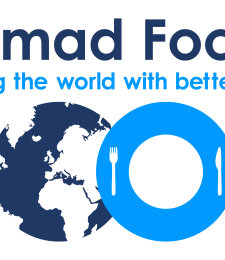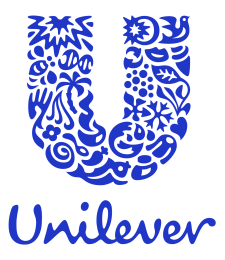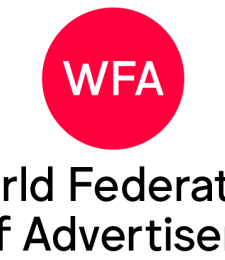Pledges
Nomad Foods (2021)
Pledges

Publishing organisations:
Editorial team
Relevant countries:
EU-27
Organisation types:
Company with 250 or more employees
Next progression check date:
Nomad Foods is Europe's leading frozen food company and one of the largest in the world. Nomad Foods focuses on providing high-quality, great-tasting, and convenient frozen food products. They are committed to responsible and sustainable sourcing, aiming to reduce food waste and innovate in sustainable packaging.
Editorial team
Topics
EU-27
Company with 250 or more employees
-
CoC aspirational objectives
-
-
1. Healthy, balanced and sustainable diets for all European consumers
-
2. Prevention and reduction of food loss and waste
-
3. A climate - neutral food chain in Europe by 2050
-
7. Sustainable sourcing in food supply chains
-
Share
Our “Eating for the Planet” sustainability strategy is built around timebound commitments on sourcing, nutrition and operations which are designed to drive continuous progress in line with the UN Sustainable Development Goals (SDGs) [in particular 2 (Zero Hunger), 12 (Responsible Consumption and Production), 14 (Life Below Water) and 15 (Life on Land)] and deliver on our promise of “serving the world with better food”. As a signatory to the EU Code of Conduct on Responsible Food Business and Marketing Practices we will report on the following topics, all of which are existing commitments.
Commitments by aspirational objectives:
Aspirational objective 1: Healthy, balanced, and sustainable diets for all European consumers, thereby contributing to:
1) Reversing malnutrition and diet-related noncommunicable diseases (NCDs) in the EU;
2) Reducing the environmental footprint of food consumption by 2030.
With the following aspirational targets:
a) Improved food consumption patterns in the EU;
b) A food environment that makes it easier to choose healthy and sustainable diets.
Nomad Foods commitments:
We are committed to growing the healthier meal choices in our portfolio every year and empowering consumers to make better choices for themselves and their families. Our Nutrition Manifesto sets out our eight key commitments to empower positive choices, including providing better consumer information, making healthier and sustainable choices more convenient, and promoting a more plant-based diet. Our Nutrition Policy specifically sets out our approach to labelling and product optimisation. Both our Manifesto and our Policy apply to all Nomad Foods brands and we apply stringent and objective nutritional assessment to all our recipes, based on an internationally recognised and independently verified method, and regularly assess opportunities to nutritionally optimise our portfolio. Our Nutrient Profiling Tool (NPT) uses an externally verified scoring system to assess the overall nutritional profile of products and determine whether they constitute a ‘healthier meal choice’.
Our Nutrition Policy sets out our internal standards on the use of nutritional on-pack claims, which go above and beyond the law. We believe in helping consumers make informed food choices and use clear labelling on the pack, including all key nutrients. We use front-of-pack nutritional labelling where possible, to help advise consumers how much our food is contributes to their daily reference intakes, and voluntarily labels fiber to assist consumers in making sure they consume a balance of nutrients across the day. Where appropriate, we also adopt nationally recognised schemes, such as Nutri-score labelling in EU markets, to enable consumers to identify healthier options. As well as providing clear information at the point of sale, we apply high ethical standards to all our marketing, PR, and communications. We operate a strict policy for marketing to children to help parents and guardians make informed choices and discourage excessive food consumption. This policy specifies our intention to promote positive values and social behaviour through our product promotion.
Aspirational objective 2: Prevention and reduction of food loss and waste (at the consumer level, within internal operations, and across value chains)
With the following aspirational target:
A 50% reduction of per capita food waste at the retail and consumer level by 2030 and reduced food losses along the food production and supply chains in the EU.
Nomad Foods commitments:
Each year, one-third of all food produced in the world is lost or wasted, resulting in significant economic, environmental, and food security impacts. As a signatory to the 10x20x30 global waste reduction initiative, Nomad Foods has committed to a 50% waste reduction target in its operations by 2030, to measure and publish food loss and waste inventories, and to create actionable strategies to reduce this waste (further information is available in our press release.) We know that partnerships and collaboration are essential to driving impact and reducing waste. We believe that our influence in the food supply chain, wide consumer reach and our capacity to promote freezing as a solution to food wastage enables us to raise awareness of the issues and help lead the way towards a less wasteful food industry.
Aspirational objective 3: A climate-neutral food chain in Europe by 2050
With the following aspirational target:
Reducing net emissions from own operations, contributing to a 55% GHG emission reduction target in the EU food chain by 2030 (following a science-based approach).
Nomad Foods commitments:
We are committed to reducing the intensity of our greenhouse gas emissions every year in line with recent climate science and 2019 Nomad Foods committed to set reduction targets for emissions in line with the Science Based Targets initiative (SBTi). In 2020 Nomad foods significantly reduced carbon emissions per ton of finished goods by nearly 11%. We also transitioned six factories to 100% renewable electricity, bringing the total proportion of electricity sourced from renewables from almost 21% in 2019 to just over 60% in 2020.
Aspirational objective 7: Sustainable sourcing in food supply chains
With the following aspirational targets:
a) Transformed commodity supply chains that do not contribute to deforestation, forest degradation, and destruction of natural habitat and which preserve and protect high-value ecosystems and biodiversity;
b) Improved social performance in (global) food supply chains.
Nomad Foods commitments:
Fish sourcing - Over a third of global fish stocks are now fished beyond biologically sustainable limits and as the world’s largest buyer of certified wild caught white fish, we are determined to lead the industry in sourcing fish responsibly. We have a commitment to use 100% fish and seafood from sustainable fishing and responsible farming by the end of 2025. We are proud to have been among the first brands to work with independent certification schemes and have worked with the Marine Stewardship Council (MSC) for over 20 years to drive progress. Currently 97% of the wild captured fish sourced for our igloo, Birds Eye, Findus and La Cocinera brands is MSC certified.
Vegetable sourcing - We are committed to sourcing 100% of our vegetables through sustainable farming practices by the end of 2025. This target and our Policy for Sustainable Agriculture, apply to all the vegetables, potatoes, fruit, and fresh herbs we use (in the form of raw materials, ingredients, or finished goods). We use the Sustainable Agriculture Initiative Platform (SAI Platform) Farm Sustainability Assessment (FSA) as a benchmark for farmers and the target is for all suppliers to be verified as minimum silver and progress towards gold. At the end of 2020, 77% of Nomad Foods’s total vegetable and potato volumes were grown in line with the minimum FSA Silver Level and Nomad Foods expects to have more than 70% of “own-grown” vegetables at FSA Gold by the end of 2021. In October 2020, Birds Eye became the first farm management group in the UK and the first ever in frozen food globally, to be verified as FSA Gold Level for sustainable food production. In February 2021, iglo Germany was verified as FSA Gold for all “own grown” spinach, herbs and autumn vegetables.
Full detail of the pledge in the provided attachment.
Comments (0)
See also
-
7
Coca-Cola (2021)
Publishing organisations: Coca-Cola Europe
Relevant countries: EU-27
Organisation types: Company with 250 or more employees
Next progression check date:
- Categories
- 2. Prevention and reduction of food loss and waste 3. A climate - neutral food chain in Europe by 2050 4. An optimised circular and resource-efficient food chain in Europe +3 more
-
10
Unilever (2021)
Publishing organisations: Unilever
Relevant countries: EU-27
Organisation types: Company with 250 or more employees
Next progression check date:
- Categories
- 2. Prevention and reduction of food loss and waste 3. A climate - neutral food chain in Europe by 2050 4. An optimised circular and resource-efficient food chain in Europe +3 more
-
33
The World Federation of Advertisers (WFA) - EU Pledge
Relevant countries: EU-27
Organisation types: EU Institutions
Next progression check date:
- Categories
- 2. Prevention and reduction of food loss and waste 3. A climate - neutral food chain in Europe by 2050 4. An optimised circular and resource-efficient food chain in Europe +3 more




